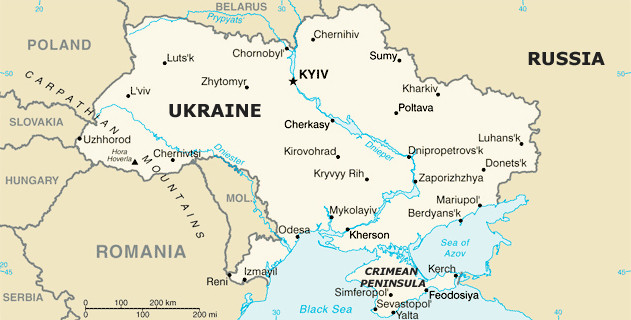In Address To Russians, Putin Warns Of 'Tragic' Consequences If West Sends Troops To Ukraine
President Vladimir Putin gave his state of the nation address to Russians on February 29, outlining his view on how the war against Ukraine is progressing and Russia's relations with the West, which he threatened with "tragic" consequences if it sent troops into Ukraine.
Speaking less than three weeks before a presidential election he is expected to easily win as he faces no opposition candidates, Putin didn't stray far from well-worn narratives and propaganda, saying the full-scale invasion of Ukraine was needed to defend Russia's sovereignty and security.
"Despite all the trials and bitterness of losses, people are adamant in this choice," he said of the "special military operation," as the Kremlin calls the invasion it launched in February 2022. In Russia, it is illegal to call the conflict a war.
Putin's address in front of audience of both chambers of parliament, the State Duma and the Federation Council, as well as other invitees, lasted just over two hours and touched on a broad array of issues.
In the first part of the speech, he accused the West of "trying to drag us into an arms race" by "trying to wear us down," before moving on to his global outlook and then domestic issues such as economic development.
“The West is not just trying to hold back our development; instead of Russia, they need a dying space,” he said, adding that at the same time the West “miscalculated.”
Earlier this week, French President Emmanuel Macron, speaking after a summit of continental leaders in Paris, said that despite a current lack of consensus, "nothing," including sending Western forces to fight on the Ukrainians' side, should be ruled out to prevent a Russian victory in Ukraine.
Putin said such a move would result in "consequences for the interventionists" that will be "much more tragic."
He also said that such involvement by the West would heighten the possibility of a global nuclear war.
"Russia has weapons which can hit targets on their territory and what they are now suggesting and scaring the world with, all that raises the real threat of a nuclear conflict that will mean the destruction of our civilization,” Putin said.
“Don't they understand it?.... Those people haven't been through any tough challenges and they have forgotten what war means,” he added.
While rejecting Western reports that Moscow was considering the deployment of space-based nuclear weapons, Putin did say that Russia's nuclear forces are at "full readiness" and that his military has deployed new weaponry in the Ukrainian battlefield.
He also said that the new Sarmat heavy intercontinental ballistic missile has entered service with Russian nuclear forces, while the country is completing testing of the Burevestnik atomic-powered cruise missile and the Poseidon atomic-powered, nuclear-armed drone.
The United States denounced Putin's comments as "irresponsible" but said it did not have any sign that Russia is preparing to use a nuclear weapon.
"It is not the first time we have seen irresponsible rhetoric from Vladimir Putin. It is no way for the leader of a nuclear-armed state to speak," State Department spokesman Matthew Miller told reporters.
Putin's speech comes before the March 15-17 balloting, which the Kremlin hopes to use as a show of national unity in support of Putin and the invasion of Ukraine.
Russian elections are tightly controlled by the Kremlin and are neither free nor fair but are viewed by the government as necessary to convey a sense of legitimacy.
The Kremlin's tight grip on politics, media, law enforcement, and other levers means Putin, who has ruled Russia as president or prime minister since 1999, is certain to win, barring a very big, unexpected development.
An hour into his speech, Putin had not mentioned Aleksei Navalny, the popular opposition politician who died two weeks ago in an Arctic prison under suspicious circumstances.
Navalny attempted to run against Putin in 2018 only to be barred by the TsIK over a conviction in a fraud case in what is widely seen as a politically motivated conviction.
Boris Nadezhdin, who spoke out against the war in Ukraine, appeared to be headed toward securing status as a candidate until the Central Election Commission (TsIK) barred him saying too many of the support signatures he submitted were not verified.
The TsIK routinely refuses to register would-be opposition candidates on the pretext that they submitted an insufficient number of valid signatures.
[please be sure to consider clicking the support button, to support this web project and related efforts]
Key Words: Ukraine, Russia, NATO, Europe, Military, Russo-Ukrainian War, Putin
